Truth, Morality and Horror in the World of "Chain Chronicle"
Guest Author: Chuck Hodgin from the Wave Motion Cannon blog
What if The Truth existed as an object here on Earth and could be fundamentally altered if touched? Or, what if a zombie epidemic existed such that you didn’t lose your agency by being bitten but as a consequence of your own moral choices? A lot of anime have unusual worlds with complicated mechanics, but none bury these under a forgettable exterior quite like the first Chain Chronicle: The Light of Haecceitas film. Based on a mobile game that most people can’t buy, the movie comports itself as rather straightforward fantasy-action fare. Yet, if you scratch beneath the surface just a bit and tease out some of the relationships between significant objects and events in the film, then you’ll find some fairly unique and deliciously intriguing stuff to think about.
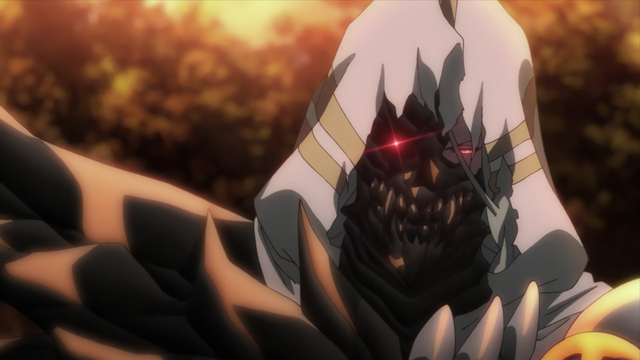
Here’s the core premise: there is a magical book called the (you guessed it) Chain Chronicle which has the entire history of the world written within it. I’m unclear whether “the entire history” means that new text is constantly being written as events unfold or that the totality of world history has already been written. This philosophical detail matters less than the phenomenon of the book’s pages becoming stained black, which causes people to become what the movie terms “infected” by darkness. Infection essentially means zombification here, only instead of being completely mindless you serve a particularly ominous fellow known as The Black King. And, the stain-to-zombie relationship also works in reverse: people can become infected by darkness through other means (e.g. contact with The Black King, or being consumed by evil emotions) and this infection will stain pages of the Chain Chronicle. There’s also a bit of a wild card. If The Black King simply touches the book, its pages will be stained, creating all the havoc that entails. These are the bare facts, but I want to tease out some of their implications.
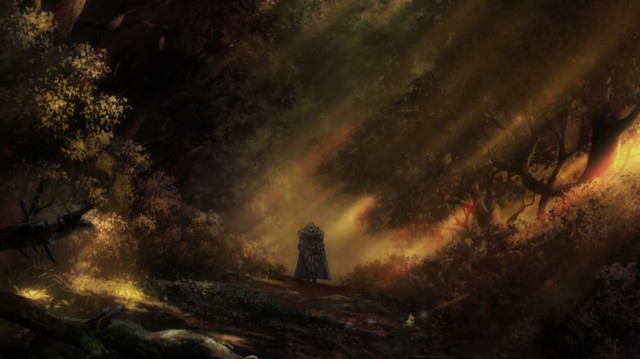
There’s a pretty tight connection here between physical matter and the human soul/spirit/heart/mind/energy/chakra/whatever you want to call that part of human beings that is not totally reducible to the physical. It’s interesting that a physical act like touching a book results in direct action-at-a-distance upon people’s minds (spiritual gravity?), but the reverse might be even more interesting. If someone on the other side of the world from the Chain Chronicle becomes infected by darkness, part of that book will blacken. The pages of a history book, and the souls of the people in that history have a unique kind of causal relationship. For genre veterans, I suppose this kind of relationship between spirit and matter is not all that surprising. However, there’s something about the way the whole mechanism is presented that makes it feel as mathematical as it does mystical.
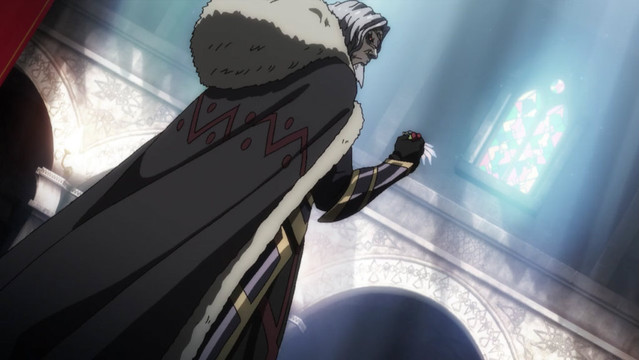
The effects of staining the Chain Chronicle also signify a close link between truth and individual members of reality. So, every event that has transpired in that world is written in that book. You might say that the Chain Chronicle contains all possible true statements for its world; if someone there writes a sentence that happens to be true, it was also written in the Chain Chronicle first. Suppose we take a semantic view of truth; in other words, suppose we say that truth or falsehood are properties of sentences rather than of states of affairs (the way stuff is). We can still adhere to the notion that the truth conditions for these sentences lie in their relationship with states of affairs, but, according to the theory we’re going with, the things correctly referred to as true or false are sentences. Ergo, the Chain Chronicle is nothing less than a complete record of The Truth, Veracity’s family tree. Now the Chronicle itself is just a physical collection of truths, which themselves reside...well the ontology is not important right now. Let me get back to the relationship between the truth and persons.
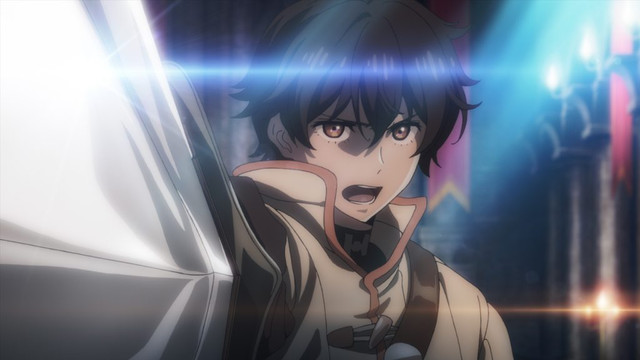
What could have happened when a person became infected is that the sentence “X became infected” could have appeared in the Chronicle. But infection triggers an event that doesn’t happen to the Chan Chronicle under any other circumstances. Conversely, when black ink washes over the words written in the Chronicle, over a token of The Truth, people are affected. If we were to adopt a Wittgensteinian account of what is contained in the Chronicle, we could say that the book is the representation of The World. Given that, the universe of Chain Chronicle is one in which The World as a unified concept is tightly linked to its individual occupants. The holistic worldview on display here is one of the film’s selling points.
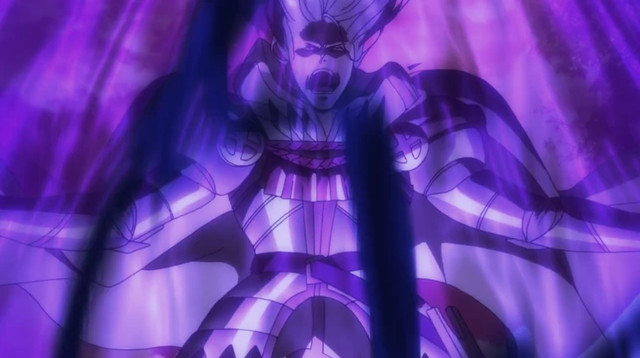
But why? Why would becoming infected by darkness cause a change in the Chain Chronicle that nothing else does (and vice versa)? I found myself asking this question after watching the movie, and the most satisfying theory I could conjure was that these films have a very specific moral point of view. The goodness or evil of a person’s soul is such an important thing that it isn’t even among the collection of all true sentences written in the book. It isn’t a piece of the representation of The World. Perhaps moral goodness is assumed to be a natural feature so deeply rooted in the representation that its undoing can only be depicted by staining the entire representation. When people go bad, The Truth is sullied.
Think about this for a moment: Chain Chronicle features a zombie epidemic that spreads not through bite or contact with blood but via moral choices. That’s f*!+ing weird. But also kind of fascinating, and the show leverages its idiosyncrasies into some interesting situations. One of the character’s arm is infected, and he spends his evenings fighting off little devils whispering temptations over his shoulder. Ghibli fans will likely see shades of Prince Ashitaka here, and for good reason. Another character gives in to one of those aforementioned devils and becomes infected, thereby conscripting himself into the service of The Black King. When the protagonist has to inform the other heroes of his infection, they gasp in disbelief because this character was such a seemingly righteous person. Considerations such as “he is too just to become infected” simply aren’t in the calculus of characters in fiction that features zombies, Yet, in the universe of Chain Chronicle, your moral choices can have a direct effect on your infection and subsequent loss of agency. Spending even a little bit of time dwelling on this concept frightens me.
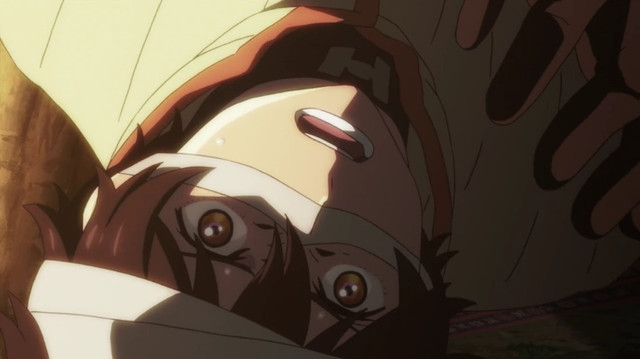
All of the above may seem like a lot of disconnected thoughts and certainly a collection of thoughts that is far removed from what most people enjoy in their anime viewing e.g. enjoying characters or being taken for a ride by the plot. It’s true that most of the features of the Chain Chronicle universe that I highlight aren’t mentioned in character dialogue or by a narrator. Several points I make require assumptions and are speculative to some degree. Yet, the world of Chain Chronicle is underpinned by a system of rules, and the story is quite explicit about the existence of this system. What the film doesn’t spend much time on is how the various rules in the system connect and what these rules and their connections indicate about the film’s worldview. I am curious to see if my ideas of the metaphysics and structure of this universe will bear thematic fruit in the upcoming films.
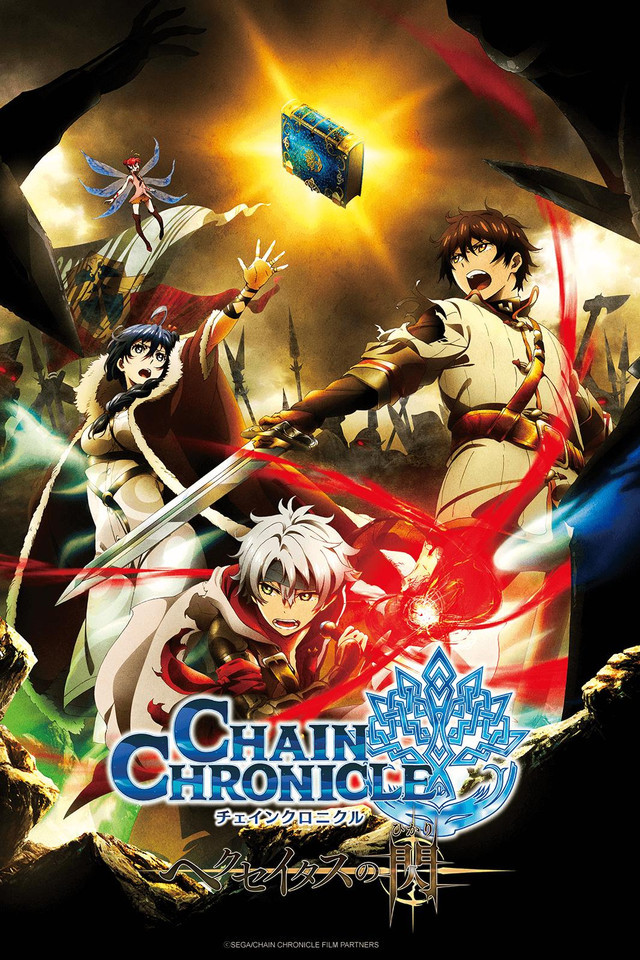
No comments:
Post a Comment